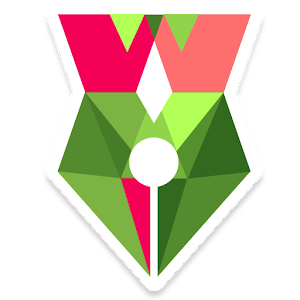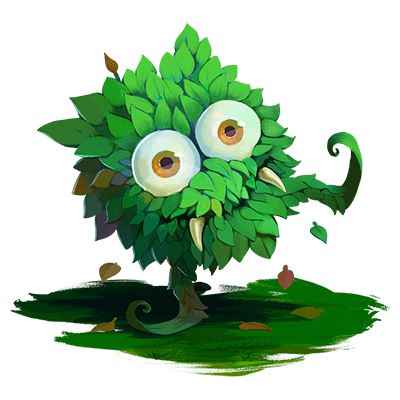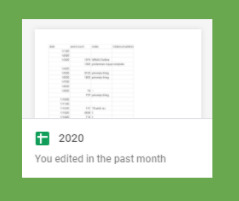#writeometer
Explore tagged Tumblr posts
Text
i've finished writing the first half of chapter 6 btw, but that's not because i'm so lazy and slow, it's because it turned out to be a little more than 11.000 words.
#and. the second half of it won't be much shorter i'm afraid. if any.#but! i've started writing it only after i've posted 'take care' so you can figure the process is. not that very slow.#writeometer says in average i'm writing 1.2k words a week. but that's *in average*#i can write 3k words a week or barely make it to 500 words. so it differs from time to time#but i have a good feeling about this chapter! can certainly see the possibility that i'll post it in less than half a year since chap5#that's fast isn't it *breathes in copium*#so yeah that's it for the update if anyone was curious how it's been going (if going at all)#putting letters together one word at a time
7 notes
·
View notes
Text
I keep hearing people ask for this (I'm also "people"). Unfortunately, I have a long weekend coming up, and poor impulse control.
If I don't over-engineer it, I could cobble something together.
I'm thinking:
Give it a word count goal, target finish date, and current word count to give "target words per day"
Save that to a csv file for word count tracking
Import a csv file to get average daily word count
Make that data into a graph. Everybody like graphs
It should probably have a GUI
(optional) support for multiple projects
(unrealistic stretch goal) make it available online/as an app instead of just a gitlab project
I'm trying to remember what else Writeometer used to have, but I think those were the features I used the most.
Is there a site like the nano site that has the same stat shit [like on average you write X words a day, if you write this much everyday you'll write Y by Z, etc] but w/o the time limit or if I want that info will I just have to use it myself [or do math myself]
3 notes
·
View notes
Text

#is this you making a dig at me writeometer? huh? is that what this is?#writing#nano#writers on tumblr#writeometer#carry on big bang#cobb 2018#cobb#On Love's Light Wings
8 notes
·
View notes
Photo

Not quite my best day for word count, but certainly not far off either. 4.5k today, more than doubling my word count goal of the day. And after a revamp of the story and a fresh start on the 7th Jan, the progress is going well. 20k now and still on track to finishing by the end of Feb #writersofinstagram #amwriting #writerslife #paranormalromance #DemonWarriors #writeometer #goalachieved #authorsofinstagram https://www.instagram.com/p/BssrKUrAl0O/?utm_source=ig_tumblr_share&igshid=1ub0isof8xcyy
#writersofinstagram#amwriting#writerslife#paranormalromance#demonwarriors#writeometer#goalachieved#authorsofinstagram
1 note
·
View note
Text
Writing Platforms and Apps
Disclaimer: Alright, I know this isn’t strictly sci-fi or fantasy-themed, BUT. Too bad, this goes out for everyone who writes, ever.
So, writing is hard. Full stop. Writing is difficult, and irritating, and oftentimes downright infuriating- and as much as we writers adore it, we could all use some help, right?
Enter some tools of the trade- writing platforms and apps! Every writers uses something to write- be it the traditional methods of pens and notebooks to brainstorm, regular MS Word programs, online writing websites, or fancy programs like Scrivener for plotting- and all of them have their merits and downfalls. There are a ton of platforms upon which one can write. There’s no way I could get through all of them in one sitting, let afford some of the fancier ones out there (curse you, fundamental necessities!), but for this post I wanted to discuss the 4 programs that I use (and have been using for more than a year) and think are especially helpful not only for writing anything, but for...wait for it...NaNoWriMo endeavors! Woooh, it’s time for Camp NaNo!!
Ahem.
So, let’s begin!
First up to bat is...Writeometer!!

This one here is an app available for free- yes, FREE, one of my favorite words right there- that is designed specifically for helping you track your writing progress. You can enter as many projects as you like, decide on your word count goals and your preferred deadline to reach that goal (perfect for NaNo!), and it will calculate how many words per day you’ll need to write- and, bonus, you can set subtle reminders to pop up at certain times to tell you it’s time to write. Even more bonuses- this app has tons of other features that are fun to use, including a writing log to record how you’re doing, graphs to show your progress, a list of stats pertaining to each project (for instance, your averages per day/week/month, your writing streaks, your best writing days, etc), a nifty little toolbox with a dictionary/thesaurus/word of the day/random words generator, AND a writing sprints timer that rewards you guavas each time you write for 25 minutes. Fun fact, guavas can be virtually exchanged on the app for prizes you set- mine include things like, “3 guavas to eat a cookie!” and “10 guavas to bang head onto desk while yelling!”. Great stuff!
Next up- another app I use very often is JotterPad!

This one is very simple- while Writeometer was meant to deal with the nitty gritty statistics and tracking of writing, JotterPad is just a clean, simple mobile platform for writing. Nothing more, nothing less. You can create new documents and folders, and organize them any which way you desire- which, in my anxious writer brain, is wonderful- and if you want, add your Google Drive to it for backup so nothing is ever lost. Each folder and document is automatically made with different font colors, which I think is a nice touch, and every document has options for a viewing mode (closer spacing, no keyboard, cleaner look) and an edit mode (allows you to write, shows spelling errors, wider spacing for easier typing). Also in each doc is a dictionary and thesaurus option, a dark screen option for writing at night or sensitivity to light, and a short collection of stats for the doc (word count, character count, reading time, etc). This is all in just the basic app- there is a pro version that brings in other cool features like different writing fonts and document formats, but it costs money and I’ve never had any need for it.
Onto the third program I like to use- myWriteClub!

This one I just discovered a little while ago, courtesy of a fellow NaNo buddy, but I love it. The site is still in beta, so feel free to jump on the early bandwagon! This is a website, not an app (although here’s hoping they make an app for it...), but it’s 100% free and only requires an email address to make an account. The whole site is oriented towards writing sprints, and they make it fun- for NaNo and Camp NaNo, you can make a private sprint that only people with the link can join up on, and for anyone else there’s a global sprint going 24/7. What are these “sprints”, you might ask? Writing sprints last 25 minutes, and start every half hour- and on this site, you can watch your friends word count meter fill up in real time. Don’t worry- nobody can see your writing, only your word count. It makes NaNo writing sprints wayyyy easier, trust me. I’d recommend setting up a Dropbox account for all your writing on the site to be automatically uploaded to- there’s only one window you can write it, and there’s no saving documents on site- which I find is actually good, because there’s no getting lost.
Now, last and certainly not least- my FAVORITE writing site, 4thewords!

Okay, I’ll try to restrain myself here. I’ve been using 4thewords for over a year now, and I ADORE it. That being said, I will mention that this is also a fairly new site, still working out some of the bugs and getting updated all the time- I’ve never had a problem, but I wanted to mention it. This site is geared towards making writing fun, which it accomplishes by turning it into a game- a game with adorable monsters. Basically, you have a little avatar (whom you can edit and outfit as you please) and a map of different places you can unlock as you progress- each location has different monsters, which you can “fight” by writing a certain amount of words in a specific amount of minutes. For instance, to defeat the Wignow you must write 250 words in 30 minutes. To defeat the Pester, 500 words in 50 minutes; the Mawt, 1,400 words in 210 minutes. 4thewords is set up like an actual game- for each monster defeated, you get little prizes that you can trade in at the marketplace, and you can boost your fighting prowess by making or buying armor and weapons. There are also different missions you can run- namely things like, “defeat 20 of XXX monster”, after which you get a bigger prize.
I mean, look at this little monster. LOOK AT IT.

Even better things! I know, I know, I’ll wrap it up quick- 4thewords runs lots of different events, including Love Week (for Valentine’s Day), Tico Week (for Costa Rica Independence Day), Winter Wonderland (for Christmas and winter holidays), annnnnd...NaNoWriMo!!! Each event has special missions and monsters to fight, and has special prizes. There’s one going on right now, actually, for Camp NaNo, and an even bigger one in November for the main event. Also, 4thewords has a Read section where you can post your writing, if so desired- and every year so far, there’s been a writing contest with real prizes for people who post their writing projects. Not to mention, I’ve spoken with the creator themselves when I changed my account email, and they were so, so polite and accommodating. The only downfall to this site is that yes, it costs $4USD a month to subscribe- but, with everything it’s got going on, from active forums to incredible graphics (the ART, you guys, holy sh*t) and an lengthy, intricate ongoing storyline, I’m okay with the cost and I think it makes sense. Plus, bonus- there’s a month long free trial upon making an account, so if you’re not sure about it, you can try it out for free!
Alright, I know that was a lot of info all at once. I want to say right here, right now that I have not at all been asked to review on these sites or make a post about them in any way- this post is purely my opinions, with no coercion or bribing or whatever else. This is just me, ranting- I mean, sharing- some of the writing platforms that I, personally, find fun and helpful for me in hopes that someone else finds it useful.
And hey, if you’ve ever used one of these platforms, tell me your thoughts! Or even better, send me your favorite apps and/or programs- maybe I’ll make a compilation post of them, who knows. Questions about them? Hit me up.
(Bonus: LOOK AT THIS LITTLE STINKER, I CAN’T EVEN FUNCTION)

Okay, I’m done, I’m done.
#camp nano#camp nano april 2018#writing#writing blog#4thewords#jotterpad#writeometer#mywriteclub#not even joking guys i adore 4thewords an ungodly amount#writing help#nanowrimo#happy easter all my easter-celebrating friends!
14 notes
·
View notes
Quote
I like writing because you can make things happen and turn out the way they never do in real life.
Rob Reiner
1 note
·
View note
Photo

For those joining the craziness that is NaNo, #writeometer Android app is pretty cool for progress tracking. Not as charming as the embed ones we used back during good ol' LJ days, but I guess we gotta move on at some point. LOL Good luck, everyone! 😊 #nanowrimo #nanowrimo2017
1 note
·
View note
Text
So I reblogged this earlier but that doesn't matter. I downloaded the app and absolutely love it! I've ready written more than I have in a week. There's an adjustable timer feature, a built-in dictionary and thesaurus, and reminders you can set. Plus, it tracks how many words you've written each day. My favorite thing about it is that you can have multiple projects going at the same time. Each is separate and has different goals/deadlines that you set yourself. Maybe it's just me, but it really helps with motivation. Definitely work checking out!!
I remember someone asked me if I knew of a website that might help them keep track of their WIP progress, and I didn’t have a good suggestion at the time, but I do now, and I scrolled through about 5,000 notes of my “you should be writing” post,,, for like an hour,,, and still couldn’t figure out who asked about it so here;
It’s called Writeometer, it’s an app, and it keeps a progress bar showing how close to finished you are.
I hope whoever asked about it before sees this post, cause I don’t remember who it was, and I could not find you,,, despite my best efforts.
Now it’s 1am,,, goodnight. 👍
1K notes
·
View notes
Text
I Just Discovered #Writeometer
I Just Discovered #Writeometer
This is going to sound like a product endorsement, and I suppose it is, but I just downloaded this thing (which is free) and I love it! I was looking for an app where I could keep track of my word count outside of NaNoWriMo, and this was the first app that popped up on my search. It had a lot of good ratings so I thought, what the hell? This turned out to be a good plan!
First of all, it’s…
View On WordPress
3 notes
·
View notes
Text
It is a delicious thing to write, to be no longer yourself but to move in an entire universe of your own creating. — Gustave Flaubert
5 notes
·
View notes
Text


Today I made it to 500 days of writing everyday :D
Even if some days were just 5 words... Lol!
#68000 words in 500 days is lame though hahaha#Considering the nanowrimo challenge is 50000 in a month! Haha!#But whatever I'm still pleased#Writing woes#Writing yays#Writeometer app
7 notes
·
View notes
Text
passed my SEVENTH writing goal already sick and twisted how many more am i going to write this year omggg.
#this is obviously like. a good thing. for me#what's annoying is just that i keep needing to delete my writeometer widget and installing it again#bc android 11 for some reason won't automatically update widget#smh
1 note
·
View note
Photo

My essay is due in two days and this app is giving me sass left, right and centre. #writeometer #sassyapps #nofaith
1 note
·
View note
Text
I still don't know what happened to actual writeometer, but all these years I am deeply glad the apk file I got online is still fully functional
I guess at some point I might need to figure out another app to do the things I need from writeometer, but as of now, bless this baby for not relying on extra downloads among other things for you to use all its tools
2 notes
·
View notes
Text
Word & Goal Tracking - Word-Count Spreadsheet
One of the simplest tools any writer can use is a spreadsheet. Maybe this sounds boring, but sometimes boring is good when it affords consistency. This method is pretty simple, so you won’t have to spend too much time with it anyway. And besides, we’re writers; why would we need a fun way to handle numbers? (if you like numbers, then rest assured this is a joke) Perhaps you do this already, and, in which case, I hope I can give you some new ideas on how to use it! If you haven’t tried this method, perhaps I can help you on your way.

This method is a quantitative one--solely for tracking our word-counts. When we consult our sheets, we are looking for how much we’ve done in a given time. Organizing my progress helps tremendously because I aim for a large word-count yearly. And while word-count cannot help with confidence in writing quality, we can rest assured that we’ve been practicing throughout the year. Each day with a number beside it, each word in those totals at the bottom contributes to our growth as writers and the advancement of our stories. Every word counts!
For my spreadsheet, personally, I use a Google Sheet because I handle everything in Google. This, however, will work with Microsoft or any other spreadsheet-type document. I used to use a nifty app called Writeometer for this, which I’m required to mention because I loved it so much, but it has hence left the app store. I hope one day for its return. With this in mind, you may find an app instead of a spreadsheet for this, and that’s great! (and I would love a link)
Typically, I keep one spreadsheet per year, and keep sections for the different months. Contrastly, you could keep sheets for different projects or longer or shorter time periods (one for multiple years? one per each month?).

The lay-out of my sheet is depicted in the picture above. From left to right, the columns go ‘Date’, ‘Word-count’, ‘Notes’, and ‘Totals/Completion’. This allows me to track how many words per day I write, as well as keep notes on writing for that day and track totals and completion status along the side.

My Notes can be anything, but I usually use this section to point out which project(s) I was working on that day. Oftentimes if I work on multiple projects in one day, I will divide the word-counts to each project and keep the same date beside them, like shown in the picture above. As you can also see, I don’t always keep track of them by the project’s name, and this is because I don’t give things titles until much later on. By that point, for continuity’s sake, I just keep referring to it as whatever it was before.

Totals have two different sections which I track: monthly and yearly. In Google Sheets, the formula I use is:
=SUM(B2:B10)
This just adds up the numbers you put in each day. For anyone who doesn’t know how to use a spreadsheet (trust me; I understand. This is the only thing I know how to do in one) B2 refers to the word-counts being in the ‘B’ column and 2nd row. Because I have my column title in B1, I start totaling in B2. It then carries on to whatever row you’d like to stop totaling. In the case above, that would be B10. In my current spreadsheet, I have it until B280.
This formula is the same in Excel, and probably other spreadsheets. If it doesn’t work in your sheet, just look it up.
As I continue to add more days, I move my totals down the page. When the month ends, I leave that total with the previous month and create a new one. The yearly total, however, continues to move along with me. These totals are the most useful parts to me. In order to achieve my yearly goal, I need to know I’m staying on track with my word-count throughout the year.

Within the same column, I will mark beside projects if I completed them. This could show the completion of a chapter/part or if I finished the entire story. Since the totals continue to move down the page as the year progresses, the complete status and the totals never end up in the same row. In the picture above, the total is right below the complete mark. If I had not missed April 30th and something had been completed on that day too, the April Total would have been moved one space down the page.
So that’s pretty much my spreadsheet. If you have any questions about how I do mine, you’re welcome to ask. If you’re new to using these, I know it can be confusing at first, so you’re welcome to ask about spreadsheets in general too! I most likely will point to online FAQs for anything more complicated than what I’ve talked about here, but I’m willing to help find answers.
Do you have tips from your own spreadsheet? If you don’t have one, will you make one now? Or is this kind of thing not for you? As always, I’d love to hear your thoughts!
@prox-xima
#code rambles#writing#word & goal tracking#i'm back with some blog posts!!#for y'all who weren't following me a few months ago#this is something i sometimes do#if you want to block it code rambles is for all my blog posts#for this particular series it's word & goal tracking#Next Week: Word-Count Goal Chart
5 notes
·
View notes
Quote
Every writer I know has trouble writing.
Joseph Heller
1 note
·
View note